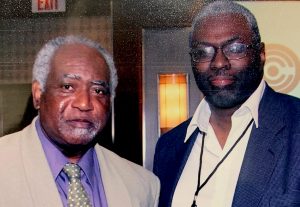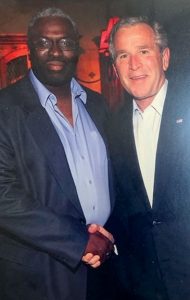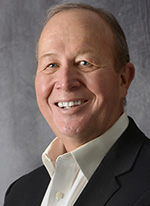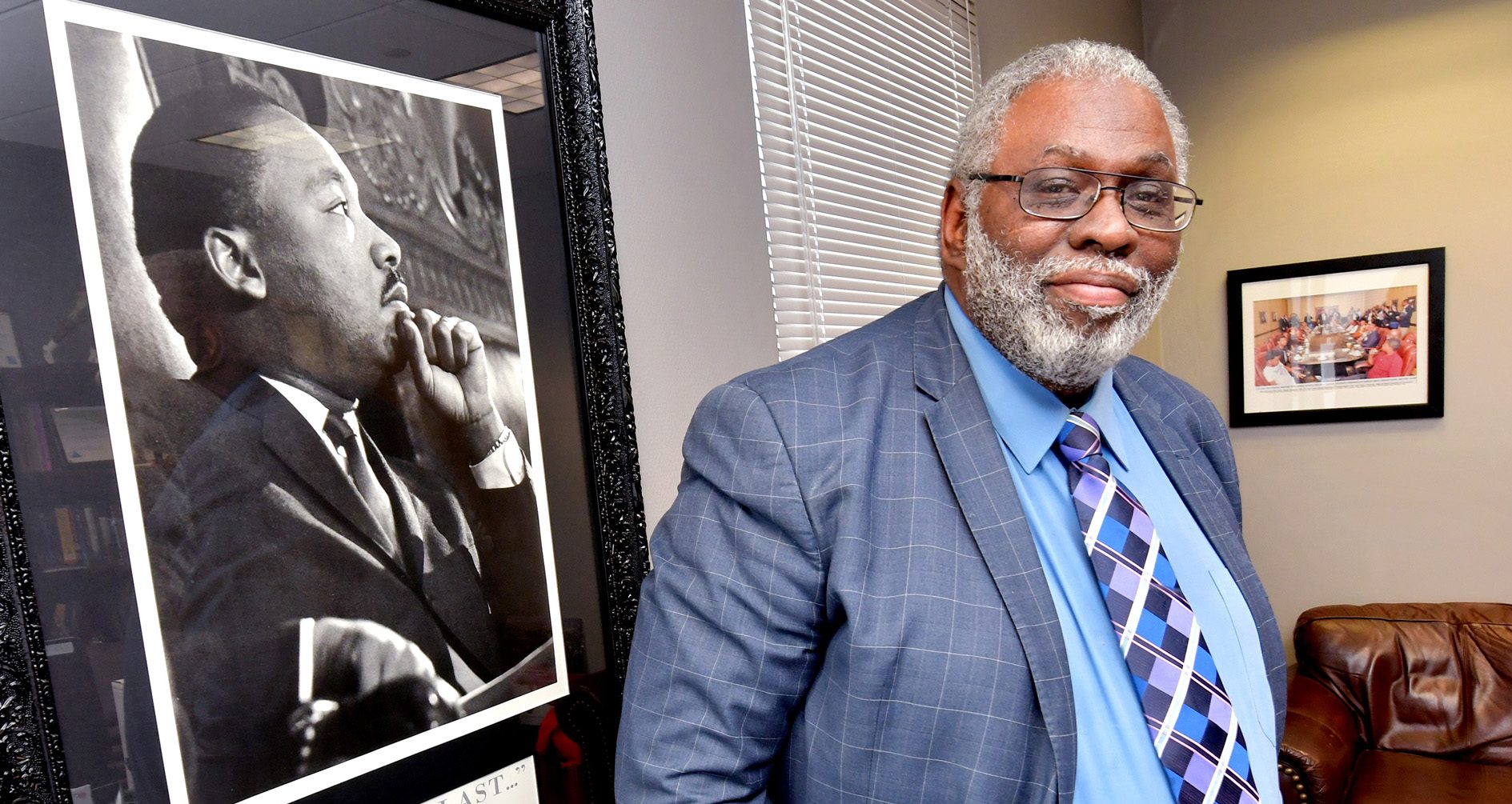Peorian Larry Ivory found his ‘calling’ advocating for Black businesses at local, state and national levels.
Larry Ivory recalls the moment clearly, still wincing at the memory.
Early in his career working as a local stockbroker for a national financial services firm, then the only African American among his peers, he learned that an acquaintance and member of the church his minister father led had invested his savings with another colleague.
Ivory had some catching up to do from the start, as he hadn’t brought to the job a significant number of friends and family who belonged to the so-called “investment class.” He remembers the uncomfortable conversation — “people have their own reasons for what they do” — which was “a defining moment for me.
Struggle can make the triumph all the sweeter, but sometimes, a little less struggle would be nice.
“I endured. I was tenacious,” and in time, Ivory would get people of all races to trust him with their money, move into management and build a lucrative career. Struggle can make the triumph all the sweeter, but sometimes, a little less struggle would be nice.
“We’re patriotic Americans who believe in a country that can do better,” said Ivory. “The only way to do better is for America to live up to its creed” of equality and the promise of a “more perfect Union.”
For the last 30 years, he’s been doing his part to change attitudes and achieve just that.
Since 1997, Ivory has been president and CEO of the Illinois Black Chamber Chamber of Commerce (IBCC), which he operates out of a 14th floor office of the Riverview Plaza building in Downtown Peoria. There he also presides over the Peoria Black Chamber. Meanwhile, Ivory was a founding member of the National Black Chamber in Washington, D.C. in 1993, culminating in his chairmanship of the board from 2019 to the present.
Call it the trifecta.
The Black Chamber advocates, educates, networks, mentors, fundraises and lobbies governments on behalf of Black entrepreneurs and businesses, with the goal of equity and empowerment. To that end, Ivory gets the word out through a Chamber magazine, public speaking engagements, and a weekly radio show — WAKE UP! — on economic issues on Chicago’s WVON 1690 AM.
“I knew I couldn’t serve two masters.”
Previously, Ivory enjoyed a successful private-sector career, both on his own and in stints with Merrill Lynch and Salomon Smith Barney. He went full-time with the Black Chamber at the turn of this century, even though it meant a big cut in pay, because “I knew I couldn’t serve two masters.
“It was a calling.”
You might expect a preacher’s son to use a word like “calling” and to pepper his speech with biblical references, as Ivory often does.
His “idol,” his father, was head pastor at Peoria’s Grace Baptist Church. The Rev. Jeffrey and Gladys Ivory raised eight children on Peoria’s South Side — four boys, four girls.

An athlete who shined in basketball and boxing, Ivory matriculated at Roosevelt Grade School (now Elise Ford Allen Academy) and Manual High School, Class of 1977. He then served three years in the Marine Corps before attending Saddleback College in California to study international business. Ultimately, he returned to central Illinois and a job on Caterpillar’s assembly line, beginning a career characterized by the upward mobility he now seeks for others.

With wife Janis, Ivory has raised three children — Tamika, Kenyatta and Joshua — with IBCC becoming something of a family affair for them.
“I think it was really my destiny,” Ivory said of coming back home. “I don’t regret staying.”
So, how are Black businesses in Peoria faring? It’s a “mixed bag,” said Ivory.
The picture is brighter statewide, where IBCC advocates for more than 120,000 Black businesses and has approximately 2,500 dues-paying members. Only a handful of the latter have a Peoria address. Meanwhile, the bad news on all fronts is that Black businesses fall far short on average revenue.
“A city of this size, you can’t identify one black business, for profit, that has more than 30 employees. That’s a tragedy,” said Ivory, who cites Census data showing that as a percentage of all local businesses, Black-owned operations “don’t even register.”
The results can be poverty, crime, illness and despair, and they’re all deterrents to economic development.
“You cannot fix these problems without understanding that if you have a thriving business community, you have less crime. It’s not complicated,” said Ivory. “If you’re working eight, nine hours a day … you’re not out in the streets taking someone’s TV. The idle mind is the devil’s playground; that’s what my father used to say.”
Ivory reminds others that private enterprise “can do good and do well all at the same time.”
At 63, “I’m at the point in my life where I can say what I want to say,” said Ivory, and even fellow African Americans sometimes disagree with him about his preference for private-sector solutions to seemingly intractable social problems. Certainly, there is a role for government — IBCC has a full legislative agenda — but as someone whose career has been devoted to the furtherance of capitalism, Ivory reminds others that private enterprise “can do good and do well all at the same time.”
But first, any winning program is “intentional about building a strategy,” said Ivory, who isn’t sure that approach exists in many communities.
It was not always so. Peoria may never have arrived at the status of the Harlem Renaissance — a period when Black industry, music, dance, art, theater, fashion and scholarship went mainstream — but once upon a time, the early ‘70s, the city did brag busy, Black-owned restaurants, markets, repair shops, an automobile dealership, hair salons, media, etc., said Ivory.
In the ensuing decades, many Black Peorians lost ground. COVID compounded the inequities, and African American businesses initially got a tiny percentage of Paycheck Protection Program (PPP) money. They did better in the second round, thanks in part to the efforts of the Black Chamber.
African Americans wield nearly $2 trillion worth of buying power…
Meanwhile, African Americans wield nearly $2 trillion worth of buying power, which puts them in the top 10 economies in the world, about equal with Canada, more than Australia, while driving trends across food, entertainment, fashion, etc., said Ivory. No one should take Black consumers for granted.
Nonetheless, “Black spending is one thing. Black ownership and equity are a different thing.”
What do Black businesses need to achieve the latter? Access to capital, for starters, said Ivory. Illinois has a Black Illinois Department of Transportation secretary — a Peorian — which is progress, but Ivory said he doesn’t see many “people of color working” on construction sites, which suggests that government contracting needs more attention. More mentoring, financial literacy and technical assistance programs are required. Investments in education are a must, as “a teacher can change a kid’s life forever.” Children need role models in the professions who “look like them.” Black business needs a foot in the door and “a seat at the table.” Finally, it’s important that African Americans not become “too passive to the point they’re not challenging themselves.”
Ivory’s Black Chamber wants to help.
Tremayne Branch runs the restaurant Rumberger’s Wings & More, with operations in Peoria and Houston, Texas. He knew all about how to prepare chicken when he first met Ivory about eight years ago, but on the business side, he was still “learning as I go.” The Chamber’s assistance and Ivory’s mentorship and participation regarding contracts, bookkeeping, marketing, etc. were invaluable, “especially during the pandemic,” Branch said.
“Just having somebody like that on your team … He’s very smart, strategic. Definitely helpful.”
“we don’t have to fight because there’s plenty of pie for all of us…”
Too many Americans view economics as a zero-sum game — one side wins, the other loses — but in fact “we don’t have to fight because there’s plenty of pie for all of us,” insists Ivory. Everyone in Peoria would benefit from a larger, healthier Black middle class.
“America is a business … a corporation,” he said. “Any time you have employees who are not being productive, it affects your bottom line … It’s in America’s best interest to put all this human capital to work.”
If he’s a realist, he’s also an optimist.
“I think the future is bright” and “Peoria has a lot going for it,” said Ivory. “Sometimes, we have to be broken before we can be rebuilt.”





